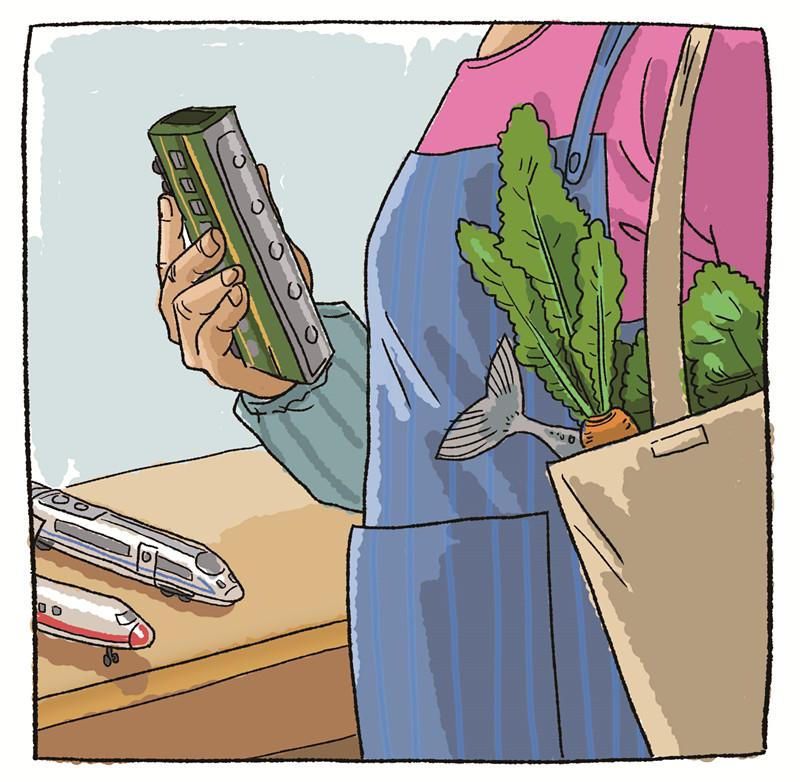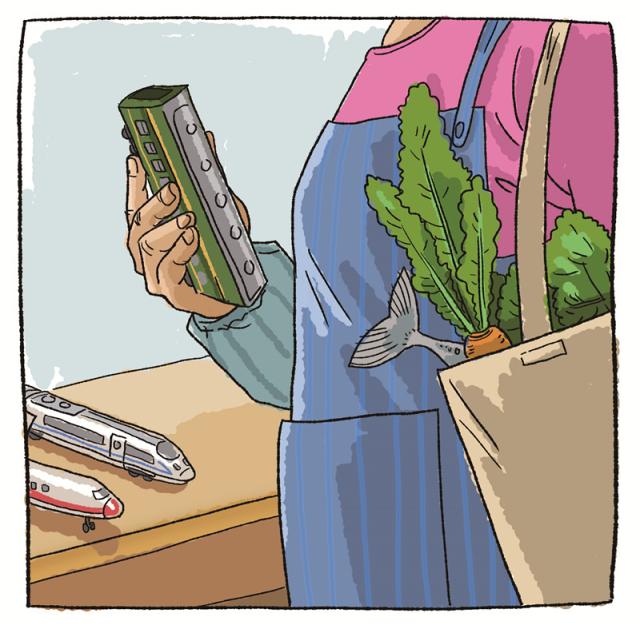can never go anywhere during the Chinese New Year holidays. My friends and colleagues always take advantage of an uninterrupted week or so off work – at the moment, one friend is excitedly planning his first trip to India, another is going to Europe, and many are planning trips to places like Japan or Thailand.
But just like the majority of Chinese people, and especially those from traditional rural communities, my ayi (literally auntie, or cleaning lady) will be making the trek back to her hometown in Anhui Province, although nowadays, she can take a high-speed train all the way there, instead of spending the best part of a whole day traveling in “hard seat class” on a slow, much stopping train. I’m still not sure if she really likes the fast train – the tickets cost more. Once, her brother gave her a plane ticket to go home – but she didn’t dare use it, as she’d never been to an airport before, and she was scared she wouldn’t know what to do. I offered to take her and show her around, like a day trip, but so far she hasn’t taken me up on the offer.
My ayi, Xiao Li, has worked in Beijing since the late 80s, making the trip up to the capital to find a way to make a living, and as many parents from rural areas have had to do in modern China, left her children behind to be brought up by others. Many of her relatives stayed behind, the irony being that they have become quite wellto-do in the intervening years, taking advantage of opportunities to set up their own businesses. But still, Xiao Li says, she would rather work as a cleaner in Beijing than sit around all day in small-town Anhui, playing mahjong all day in cold, damp houses.
Anhui doesn’t have government-provided central heating – a hangover from previous days when it was decreed that houses below the Huai River didn’t need it. When I suggest getting a heater, or using the air conditioner on heat mode, that draws much scorn – too expensive, she says. And she likes to be busy, especially working for foreigners – we pay more and are not so fussy. She had a brief job last year for a rich Chinese family, the husband in business, the wife not working. The lady of the house would sit on the sofa and direct her every move, in case she dropped one of her extremely expensive glasses, and made sure that even the underside of the table was dusted. Xiao Li didn’t last long.
I don’t have anything nice or expensive – my cats have seen to that. Which brings me back to why I am always stuck in Beijing at Spring Festival – my ayi, and everyone else’s, plus most of my friends, are away for the holidays.
This doesn’t only mean that I have to look at the black hole of the kitchen sink, I have to vacuum and change the sheets – more importantly, I don’t have anyone to come and feed my cats if I go away.
Xiao Li thinks pets are an unnecessary luxury – she’s quite right, but over the years, my rescue habits have increased, and my home is full of critters. But being Chinese cats and dogs, they take the annual barrage of fireworks quite well, although I, myself would rather not be subjected
to it – when I see Chinese parents allowing children to hold fireworks as they go off, or stand too close to piles of massive fireworks that would normally be used in professional displays in Europe or the US, I become quite stressed.
Last year, the owners of my local pet food store, who had rescued a mother dog and her six puppies from the freezing streets, decided that I would be the perfect person to look after them. I’d never dealt with puppies before, and didn’t really know what I was getting into, what to feed them, until I Googled “puppies food.” Though, inevitably, whatever goes in, must in some way come out. All over the floor of my spare room.
I couldn’t wait for Xiao Li to come back, that year she’d gone earlier, to avoid the train crush. But then, just as she was due to come back, a phone call. Her mother-in-law had suddenly passed away, right after dinner. She’d have to stay for the funeral, at least another week.
I don’t think there was much love lost between Xiao Li and her husband’s family – I have been hearing stories for years about his feckless behavior, and traditionally the relationship between daughters-in-law and mothers-in-law seems to be fractious.
When she finally came back, to find me drowning in puppies and cats, frantically trying to keep the pups in one room behind makeshift barriers, so as not to ruin the rest of the house, barriers they became increasingly determined to climb, it was a big relief.
I asked how everything had been at the funeral.
“Oh,” she said, “It was great.” First, she reenacted a blow-by-blow account of her late mother-in-law’s last moments. “She ate dinner, and she was fine, and then suddenly, she said ‘I don’t feel so good’, and that was it.”
But the funeral was magnificent – very “renao,” using the Chinese word for a hot, noisy, convivial atmosphere, that really doesn’t have an equivalent in English. Maybe the Irish “craic” comes closest.
“The whole village turned out, it was really a big affair,” she said - almost as noisy as New Year’s Eve. “You know how country people are.”

 Old Version
Old Version
